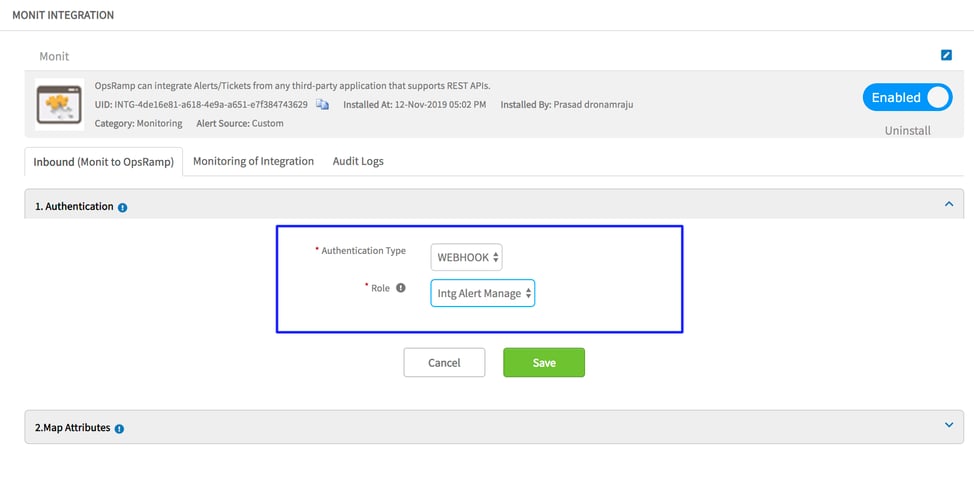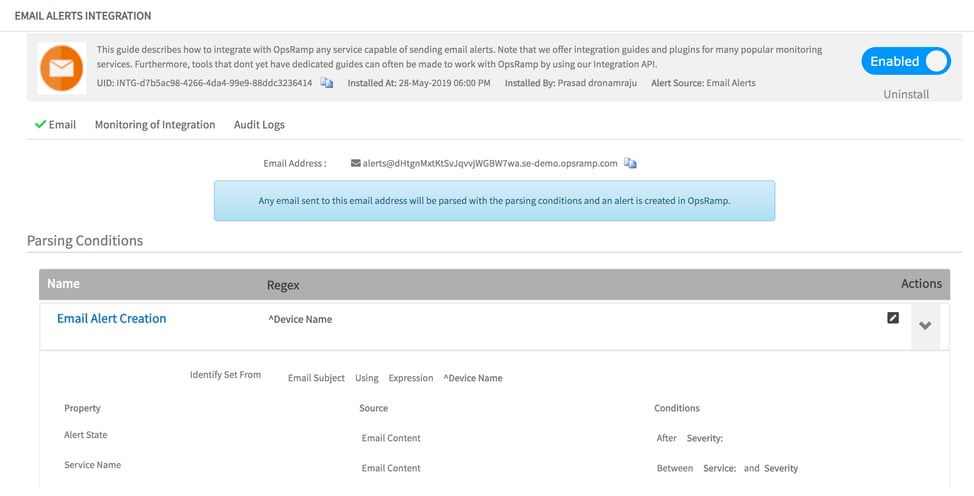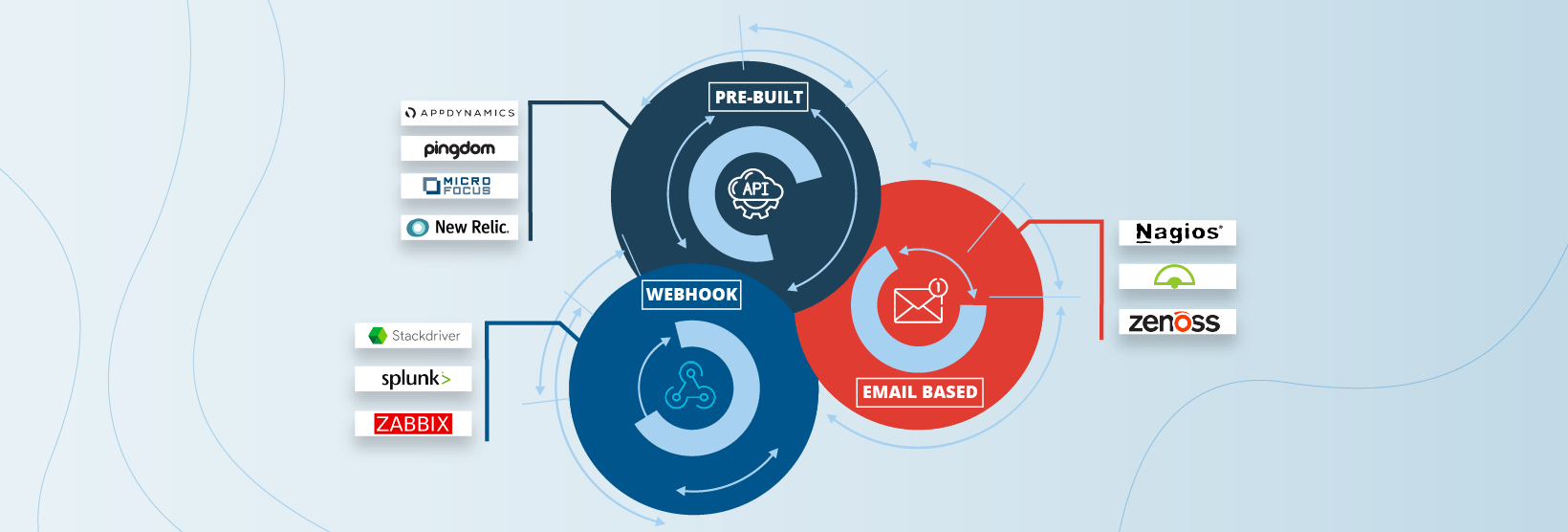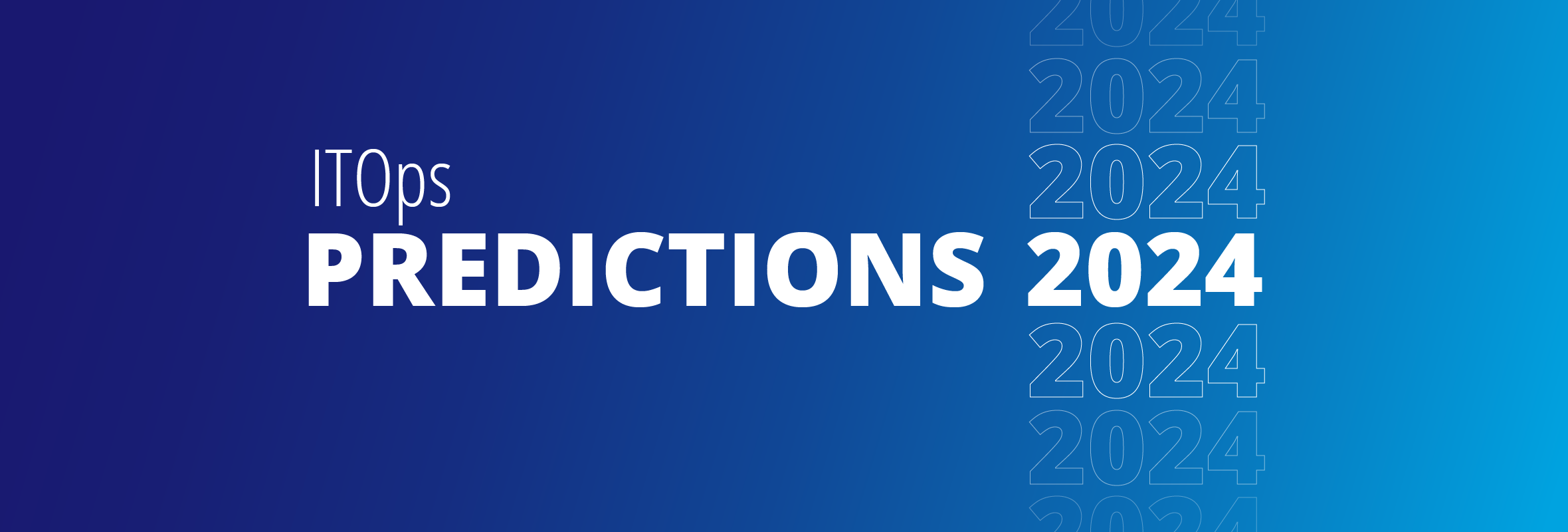In this article:
- OpsRamp offers ready-to-use and custom integrations to third-party monitoring tools.
- The platform provides three types of alerts integrations: pre-built, webhook-based and email.
- OpsRamp also automatically creates new managed resources for alerts ingested from other monitoring tools.
DEJ's The Roadmap to Becoming a Top Performing Organization in Managing IT Operations report found that 40% of IT teams use more than 10 monitoring tools to ensure the right levels of operational visibility and control. Given the diversity of tools used by enterprises, the only way to ensure collaborative unified incident management is to use a modern AIOps platform with native infrastructure discovery and monitoring instrumentation. The system should be able to consolidate events from different tools and offer proactive insights to ensure optimal performance.
Intelligent incident management helps organizations maintain uptime and deliver consistent user experiences for mission-critical services. OpsRamp's AIOps platform ensures on-call teams never miss out on urgent notifications by weeding out noisy alerts. The platform also provides context for third-party events using service and topology maps so that IT operators can understand the impact of an incident on the business. IT teams can also build integration workflows to create, update, or close an incident in response to native and third-party alerts for prompt issue resolution.
Digital and IT operations teams can combine OpsRamp's powerful AIOps platform with dynamic alert escalations to ensure that the right person receives the right message at the right time. Alert escalation management delivers situational awareness for on-call teams with dynamic shift rosters. Through multi-channel notifications using email, text, voice, and chat, operators can see the detailed incident context for rapid service restoration.
Why You Need a Comprehensive Alerts Integration Ecosystem
OpsRamp OpsQ, the intelligent event management engine, can receive events from third-party IT management tools, analyze and enrich these events using machine learning algorithms and dynamic topology, and send context-rich alerts and incidents. OpsRamp offers both ready-to-use and custom integrations using APIs, webhooks, and email to deliver an integrated notifications ecosystem that can include IT monitoring, IT service management, information security, and DevOps tools.
While OpsRamp can ingest, process, and analyze events from third-party tools, OpsQ can also automatically create new managed resources (if that resource does not already exist in OpsRamp) for alerts ingested from other monitoring tools. Automatic resource creation ensures rapid root cause(s) analysis for third-party resources with relevant context. Application owners can also tag external resources to service maps so that they can drill-down and troubleshoot the supporting hybrid infrastructure for the associated business-critical service.
OpsRamp provides three types of alerts integrations for faster incident response with better problem isolation and dynamic incident context:
- Pre-Built Integrations. OpsRamp offers out-of-the-box alert integrations for hybrid monitoring, service desk, authentication, and collaboration tools. Administrators can build new custom API-based integrations using the OAUTH2 authentication model.
 IT teams can install the following pre-built integrations by using the instructions in the links below:
IT teams can install the following pre-built integrations by using the instructions in the links below:
- Webhook-based Custom Integrations. Most modern IT operations tools consume and push events and alerts through RESTful APIs. Customers can use the custom integration framework to push events into OpsRamp as long as an external tool supports webhook authentication.

IT teams can configure webhook-based integrations for some major IT monitoring tools by following the instructions in our documentation portal:
- Email-based Alert Integrations. You can create email alert integrations in OpsRamp for IT operations tools that don't have pre-built integration workflows. OpsRamp can integrate with any third-party tool that is capable of sending notification alerts via email. The OpsQ event management engine processes incoming email notifications through user-defined rules, displays email alerts in the Alert Browser, and pushes incidents to IT service management tools.

OpsRamp also provides predefined alert sources (for tools like AlienVault, CloudWatch, Cradlepoint, Nagios, Prognosis, SAP Solution Manager, System Center Operations Manager, Sensu, and Zenoss) for email alerts so that IT teams can track the source of email-based alerts.
The OpsRamp alert integrations framework helps incident management teams handle different third-party alert sources in a single place and then apply algorithmic insights for determining the probable root cause(s) of an IT service degradation.





